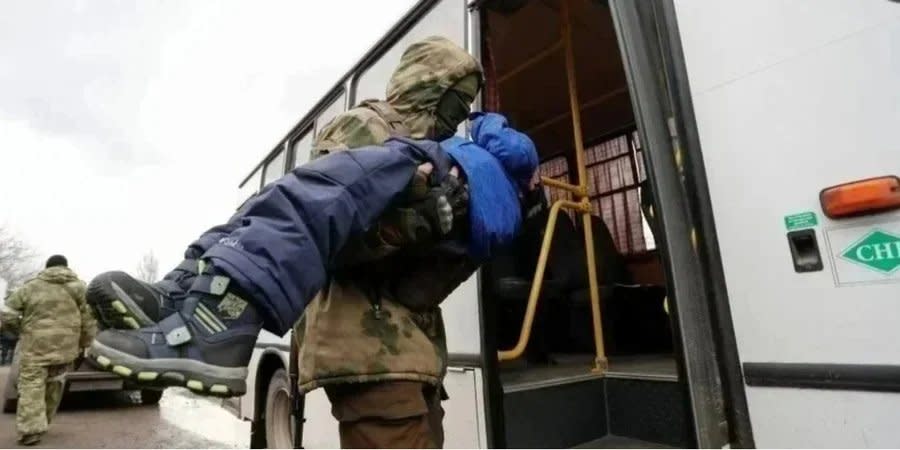Ukraine needs our full support as more of its citizens go missing

The disappearance of tens of thousands of people—in the diaspora, on the battlefield, through arbitrary arrest and illegal deportation—is one of the most painful legacies of the Russo-Ukrainian war, but steps are being taken to locate and identify the missing and ensure that families can exercise their right to truth and justice.
The International Commission on Missing Persons (ICMP) has been working with partners in Ukraine since 2014. At the request of the authorities and with the help of international donors, it launched a full-scale program in the months after the invasion. Today it is supporting Ukraine’s efforts to systemically establish the fate of missing adults and children, missing civilians, and members of the military, those who have gone missing inside Ukraine and in neighboring countries.
Originally formed after the war in the former Yugoslavia, ICMP spearheaded an effort that has made it possible to account for more than 30,000 of the 40,000 people who went missing in that conflict. Since then, it has worked with partners around the world to account for people missing as a result of war and other causes. ICMP’s experience shows that an effective missing persons process requires coordination across institutions and government bodies; it also requires a functioning legislative and institutional framework, the use of modern forensic and database technology, and the engagement of civil society (with families of missing persons playing a leading role).
Unlike some of the countries where ICMP operates, Ukraine already has many of these elements in place. It has made substantial progress in developing a workable system that can account for the missing and notify families. But there are gaps.
In the summer of 2023, ICMP published an analysis of the missing persons challenge facing Ukraine, and a description of the steps that still need to be taken to meet this challenge. A Country of Missing People describes the technical, legislative, and institutional elements that have been applied successfully in missing persons programs elsewhere in the world and explains how some of these can be applied in Ukraine.
We have found that stakeholders in Ukraine—from government officials to families of the missing, from forensic scientists to parliamentarians—are willing to cooperate in an effective system but often are unable to do so because the present system is not fully operational. There are qualified and committed personnel, but the work they do is not in every case fed into the overall process. To identify a missing person may require the cooperation of a family in Kherson and a laboratory in Kharkiv, together with a ministry in Kyiv and a police office in Poltava—and the input from each of these different sources has to be collected and shared in a way that is timely and accurate. Contrary to popular belief, getting disparate stakeholders to work together in an administrative system—particularly in countries where bureaucracy tends to be impenetrable and slow—is not an impossible task, and Ukraine actually has some advantages. For example, the digital infrastructure and the digital culture is notably advanced, and this is crucial when it comes to applying database technology.
Many of the recommendations that ICMP has made to the Ukrainian authorities since 2014 have already been incorporated in measures to address the issue of missing persons, including the Law on the Legal Status of Persons Gone Missing Under Special Circumstances. ICMP is now making specific recommendations on filling gaps in the existing framework.
Supported by the European Union and by governments of Canada, Germany, Norway, and the United States, ICMP is providing training and resources to Ukraine. ICMP’s capacity to do this is further bolstered by the long-term support it has received from state parties, including the United Kingdom, the Netherlands, Sweden, and Luxembourg. The legacy of the missing is one of the most painful of this conflict, but the system that is being developed to account for those who have disappeared can deliver truth and justice.
Ambassador Knut Vollebaek (ICMP Chair)
H.M. Queen Noor of Jordan
Ambassador Dirk Brengelmann
Ms. María Eugenia Brizuela de Ávila
Rt. Hon. Alistair Burt
Mr Rolf Ekeus
Ms. Thao Griffiths
Ms. Barbara Haering
Mr. Bert Koenders
Ambassador Thomas Miller
Judge Sanji M. Monageng
Kathryne Bomberger (ICMP Director-General)
ICMP is a treaty-based intergovernmental organization with Headquarters in The Hague, the Netherlands. Its mandate is to secure the cooperation of governments and others in locating and identifying missing persons from conflict, human rights abuses, disasters, organized crime, irregular migration, and other causes and to assist them in doing so.
We’re bringing the voice of Ukraine to the world. Support us with a one-time donation, or become a Patron!
Read the original article on The New Voice of Ukraine

